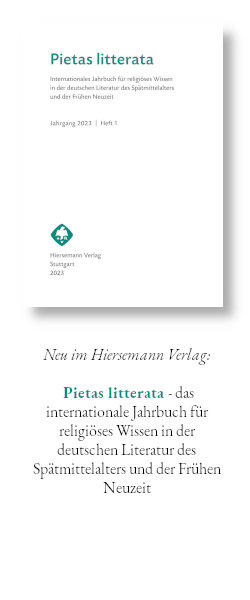L’inno Iuste iudex Iesu Christe: tradizione, anonimato e problemi di attribuzione
DOI:
https://doi.org/10.36191/mjb/2025-60-1-2Schlagworte:
Medieval Latin hymnography, Berengar of Tours, Brunus-Eusebius bishop of Angers, Anonymity in Literatur, mprecatory PsalmsAbstract
Pierluigi Licciardello: The hymn Iuste iudex Iesu Christe: tradition, anonymity, and problems of attribution
The hymn Iuste iudex Iesu Christe is a composition in 36 Trochaic ac-centuative tetrameters, written in the area of Angers around the middle of the 11th century. It has been attributed by scholars to Berengar of Tours; however, this attribution does not appear until the 12th century.
It could be attributed instead to his friend Bruno-Eusebius, Bishop of Angers, who was the author of a small corpus of similar composi-tions in accentuative verse. Alternatively, it might have originated as an anonymous text, attributed to Berengar because of the existential situation it expresses. Indeed, the hymn is a supplication for help from a man who, surrounded by enemies, invokes God’s justice. The violent tone recalls the model of the ›imprecatory Psalms‹. The anonymity, in this case, makes the text objective and adapts it to any man living in the same condition. The hymn was transmitted in 85 manuscripts dat-ing from the 11th to the 16th century and was translated into several languages in modern times. This paper provides a new edition of this hymn from the 39 oldest manuscripts (11th – 14th centuries), with a list of the variants and an apparatus of the sources. A great diversity can be seen in the structure, since some manuscripts reverse, omit, or add some stanzas.


